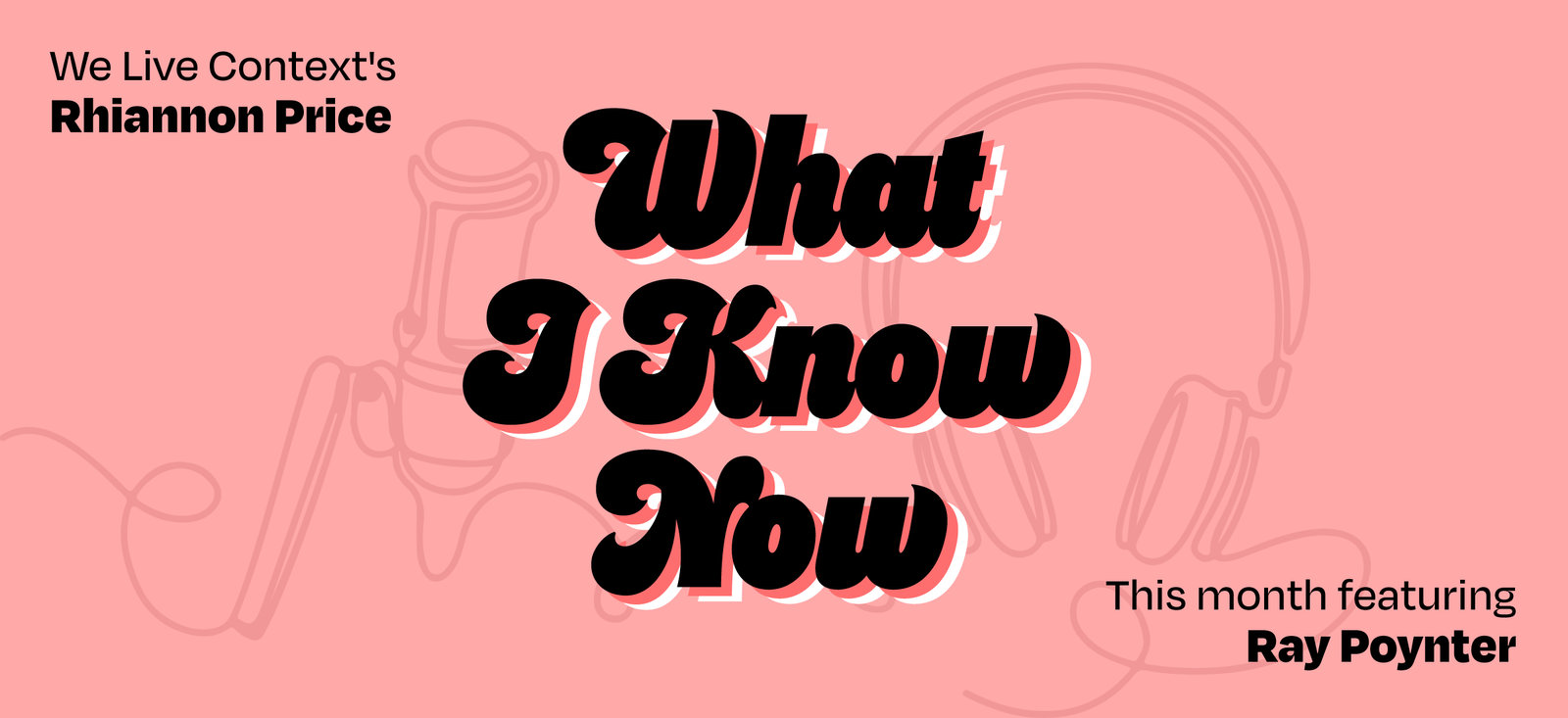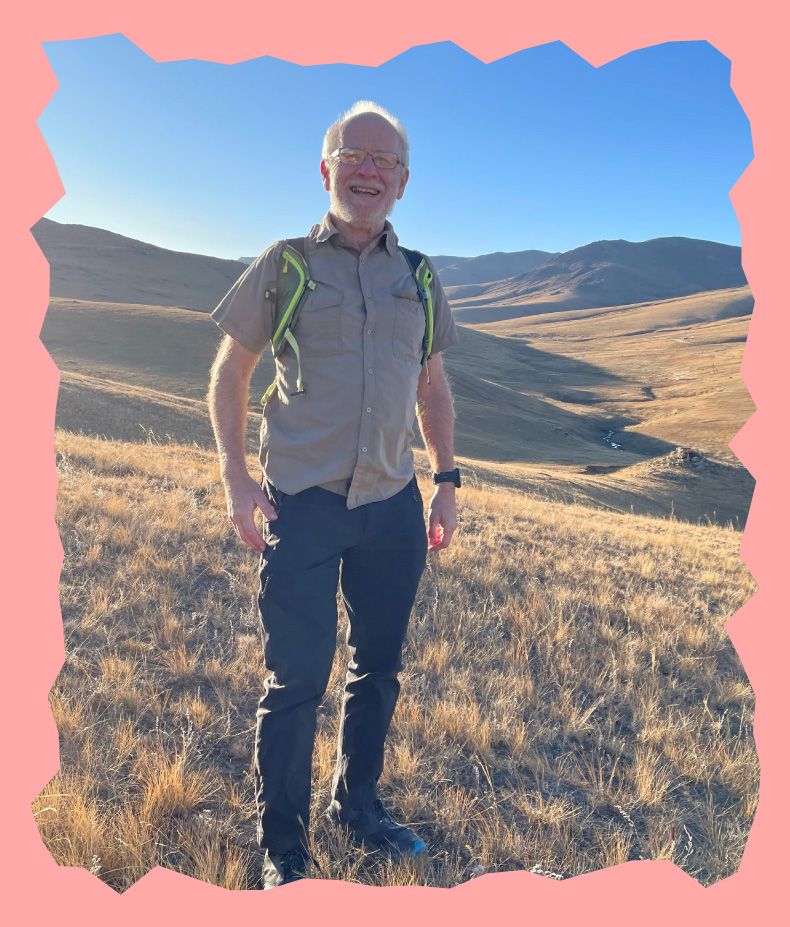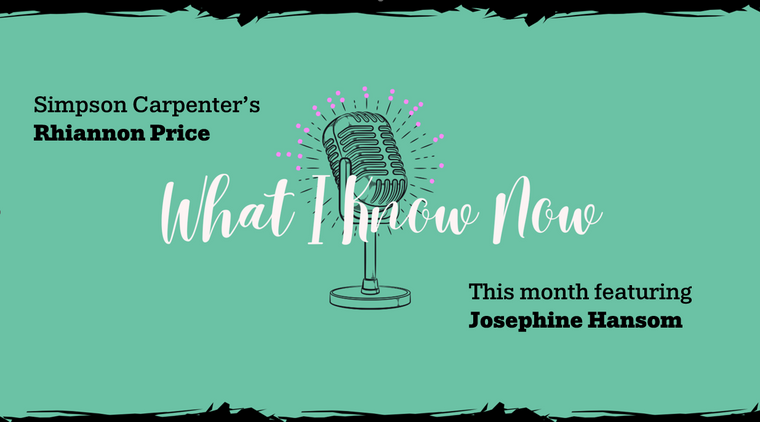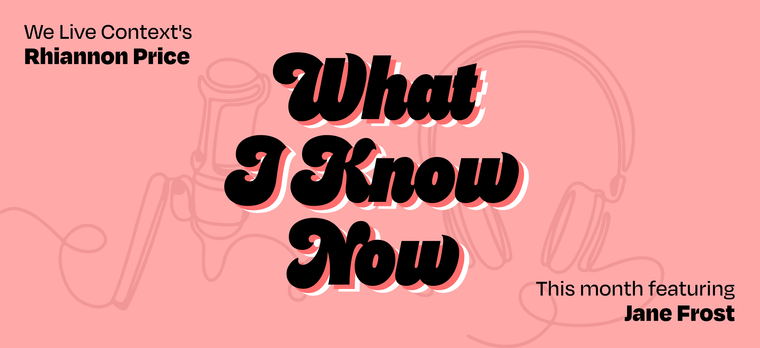What I Know Now... Ray Poynter
This month, Rhiannon Price interviewed Ray Poynter about finding 'the edge', ultra running, and his passion for innovation in the MRX industry.

I’m lucky enough to have interviewed some super interesting people throughout my career. People from all over the world. People from all types of professions. People from many different backgrounds. I’ve spent days in their company taking it all in. I’ve seen them laugh, cry, and get angry about the twists and turns their path has taken them on. Be it a South African entrepreneur in Soweto or a Saudi millionaire, I have learned a lot about how people get to where they are going and their advice for life. But until recently, I have never really turned the lens inward. I have never asked my peers or the people I most admire in market research what their advice for life is. How they got to where they are. How they see things. But when I did, I found it wonderfully inspiring and not only a little bit transformative.
And so, I thought it was about time that we celebrated the wisdom of our MRX crowd and let their stories inspire us.
This month I spoke to Ray Poynter, sitting ESOMAR President, industry educator and founder of The Future Place/ #NewMR, who talked to me about finding ‘the edge’, the crazy world of ultra running and his passion for innovation.

Let’s start like we mean to go on with the “big one at one”… Are you where you thought you would be at this point?
Well, two years ago I was moving towards retirement. I was cutting down my working days, but then two events happened. One is I stood for election to be the President of ESOMAR. And two, the launch of ChatGPT fired up my interest in a new technology and a new horizon.
I’m actually not surprised to hear that! Throughout your career you've been very influential and passionate about making sure market research moves with the times, what has driven that desire?
The glib answer is a low boredom threshold. My first job was writing software for the research world on the very first Apple computers. And then a year after that, I formed my first company, which was we would now call a REStech, looking at software and technology. But always looking for the next bright shiny thing.
So, how did you get into market research if that was where you started?
I knew a wonderful guy in London, Alan Frost, who set up a research company and I provided him with software so that he could do statistical analysis. Over time, I became more involved with the use and less involved in the creation - even though I still ran a computer company and software house up until 1995. I was eventually a Director of Alan’s company when he had to retire, and then we merged with Colleen Ryan and Wendy Gordon's The Research Business. This leapfrogged me in terms of understanding the non-quant side of research. I mean it was a torrid year, but I certainly learned an enormous amount.
What made it a torrid year?
Just the clash of approaches and style. Nearly everybody was a qualitative researcher and I was coming from a pure science, evidence-based paradigm. I didn't really appreciate the power of subjectivity so it was just adapting to a new way of looking at things.
What do you think you learned from that year and how you adapt your mindset to the people around you?
There's a lovely book called ‘A Whole New Brain’ by Daniel Pink, where he talks about the fact that we are predominantly left-brained, but we need to be much more right brained. But he's not talking about being right-brained instead of left-brained. He's talking about using the whole brain and that just opened up my thinking.
So then fast forward to when you were thinking about mobile research specifically, which was a huge step change in the way that we did market research. What were some of the challenges and points of friction that you faced at that point?
I think the real issue was trying to get people to think about mobile first. People wanted to know how we could avoid having to do mobile, as opposed to simply accepting they’re going to have to do mobile. The world changes and people try to protect the thing they're good at without recognising we need to move on.
Why are you so fascinated by all this change?
I guess it's problem solving and trying to understand the world. I'm too old to be neurodiverse, but I suspect I would have been diagnosed and so understanding the world has always been a challenge. I think when we look at researchers, there are two groups who’ve got a really big advantage. One are really empathetic with a natural understanding of other people. And then there are other people who don't understand people and have to study the subject. I think both of those have got some interesting strengths and I certainly fall into the second category.
So then fast forwarding to ChatGPT - you couldn't have just let that one ride out without looking into it?!
I'm not a big believer in gender differences, but occasionally they crop up. When I was learning to ice skate as a teenager, one of the very noticeable differences was that the boys fell over a lot more and learned to skate faster because it's all about where the edge is. You need to do those experiments. Try these crazy ideas. See if it will work. Let's find out where the edges are. AI is going to be an enormous change.
And there's a fascinating thing in terms of AI called cannibalisation. This is where instead of learning from things that humans are creating, like reading Shakespeare and Reddit, it starts reading things that AI has written and that could spiral in all sorts of unhelpful directions. Already more than 50% of the images on the Internet are machine generated.
Did you say 50%? Wow. It’s not even been around that long! Going back to ‘finding the edge’, is that something you live by? For example with your ultramarathons?
Ohh yes! But actually, in fact, with ultra running I've developed a philosophy called ‘running inside’, and that’s about not reaching the edge. So, for example, if I'm running a three day race, I'm going be getting maybe two hours sleep a night. And if you get completely exhausted, it's really hard to get back from that. If you get quite cold, it's not too bad, but if you get too hot - and I've run in 45 degrees in the desert - it's really hard to cool down. So in this instance, stay away from the edge.
Likewise, it comes into play if you're doing projects for clients. You need to let them know where the edge is and let them assess how close to the edge they want to go. Because obviously there's some good stuff near the edge, but there's also much bigger risk.
But if I want to learn, I want to be right on that edge.
Sorry, I can’t not ask you about your ultra marathons and things like two hours sleep and running in 45 degree heat! Why? Why do you do that?!
Well, we have a thing in running called Type 2 fun. Type 1 fun is like eating cheesecake, where you enjoy it while you are doing it. With type 2 fun, it can be really hard, but afterwards you look back at it and think ‘yeah! I'm glad I achieved that.’ It is about finding the edge in the sense of what can I do. I did a race two summers ago. It's 268 miles over five and a half days, and you're carrying quite a heavy bag. Four or five years before that , I would not have dreamt I could have done it.
Wow that’s incredible! This all requires a huge amount of discipline, do you have any daily rituals that help you?
For the last five and a half years – which is just over 2000 days - I've run at least three kilometres every day. And the main thing that makes you do, is think about what you're going to be doing. You have to think about tomorrow, where you're going to be and what you're going to need. It also gets you into the habit of planning and structuring. I tend to go to Australia at least once a year, and there are sometimes when I will take off from London on Monday and I will land on Wednesday. So when am I going to run on Tuesday? The answer is around Changi Airport in Singapore! And last night I was stopping at a Travelodge and I ran three kilometres around the wretched service station!
Security must be really confused when you run around these airports, they must be wondering what you're doing!
I've never tried it around Heathrow, I think running around there with a rucksack would be a little risky!
So, let's talk about you being the sitting ESOMAR president. Throwing your hat in the ring is a massive undertaking. What motivated you?
It's been fascinating. It's been a lot of hard work and it's been some stress, but you see things you wouldn't see otherwise. And I felt that I could help as I've got some experience which is relatively unusual in the research world. For example, I spent 28 years as an elected politician in the UK as a county and district councillor. I have created and run companies, and I've got over 30 years membership of ESOMAR and even more of the MRS. I knew a lot of the people and I have a very good relationship with a lot of the other global associations. I could see how I'd be in a good position to be collaborative. And at my stage of my career, I'm kind of fireproof - I'm not going to be worried if I don't make friends or if I upset people because I imagine this is my last public gig in the research world.
Did you find getting the presidency was an achievement and how has achievement changed for you over the years?
I tend to have a sort of Imposter Syndrome, so whenever I achieve something I think OK, it must not be that special because I did it.
And so, the first thing that you get is the realisation – like I did when I was elected to Political Office - is the realisation of the job to do more than anything else.
You're a realist then.
Well I am, yes. I'm also a lapsed Methodist. I come from a Methodist family and I lost my religion in my teens, but none of the things that go with it. Methodism in the UK is very keen on saying ‘you're not special. You're here to do a job’.
Gosh, it was really stuck with you then. So even when you've done a five day marathon does that feel like a sense of achievement?
I feel pleased.
Just pleased?
Yes, I feel pleased. And by the way, in January this year I was trying to do the winter version of the other race I told you about and I did a DNF (did not finish) at 169 miles, which is my longest ever DNF. So I don't always succeed and I'm quite comfortable with that because that's finding the edge.
You clearly pack a lot into your life, and it doesn’t come as a surprise that you describe yourself on Linked In as ‘at the intersection between work, fun and discovery’.
Yes, I don't really differentiate different parts of my life. Life has to be fun.
Have you ever walked away from anything in your career because you weren’t having fun?
Ohh yeah. But only once without any financial security. I walked away from a job with three small children and a wife who wasn't in paid employment because I had spent five or six days not liking the work. Which is probably not super wise, but it is me.
It takes some bravery to do that. Have there been any decisions in your career that you've regretted?
I don't really do regret. There are things where I look at it and go ‘I could have done that better’. Everything bad that has happened has been something I've learned from. So don't beat yourself up about it. Recognise it, but ultimately if you can't change it, you can't change it. And don't be afraid to make more mistakes, but try never to make the same mistake.
Setting up your own company was also a brave thing to do, especially a year out of university. What motivated that?
I think most people who set up businesses are not that employable because you want to be doing your own thing.
Ha, Lucy Davison said this to me as well.
Absolutely. This doesn't mean to be arrogant, but I wanted to make the choice about what projects to work on, what technologies to develop. But also the ability to blend my life between family and work is really important to me.
And finally, to end the conversation, some quick fire recommendations.
If you read just one book?
Dan Heath ‘Made to Stick’. It’s full of simple examples of things that people have done that actually work.
If you listen to just one podcast?
‘More or Less’ from Radio 4. It shows how often numbers and messages are misunderstood.
If you follow just one person on social media?
The people I pay the most attention to are people who I'm going to disagree with. So Mark Ritson, Byron Sharp, Rory Sutherland, all of whom are really bright, really articulate and sometimes say the dumbest things which spiral some really good thinking for me.
And finally, if you remember just one thing?
Try to enjoy it.


